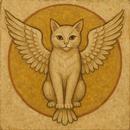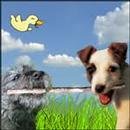Subject: EDQ #8: Quizzing the Controversy
Posted by: CellarDoor
Date: Jun 15 13
So far in the EDQ, we've seen tips about writing style and info choice, queue management and correction notes, following the guidelines and steering well clear of plagiarism. We haven't really talked yet about writing the actual questions, though, and sometimes this is harder than you might think!
My name is CellarDoor and I've been on the site since 1999. I've been a Sci/Tech editor for about a year and a Religion editor off and on since 2000, and I've had stints in Humanities and Music as well. I've seen a lot of questions in my time, and I like to sort them into two main categories. Some questions, like "What's the square root of 256?" and "Who played Hikaru Sulu in the original 'Star Trek'?", have clear correct answers on which knowledgeable people agree. Some questions, like "Is there a God?", do not. This is a trivia website, so every single FunTrivia question must be phrased in such a way that it has one right answer, recognizable worldwide. It would be a much more boring site, though, if we couldn't ask about things on which people disagree, like the nature of Heaven or who wrote Shakespeare's plays. When you have a potentially controversial question, the trick is to form it in such a way that the answer itself is not controversial, while respecting the people who hold opposing viewpoints.
Sometimes, this means defining your context. For example, the question "Who was elected president in 2011?" is something on which people around the site will disagree, because there are dozens of different countries with presidents and every player will think first of his or her own President, or the President of his or her neighbors. If I change that to "Who was elected President of Ireland in 2011?", I've defined the context by explaining just what type of president I'm thinking of. Now both the author and the players know exactly what we're talking about, and can agree on how the answer should be defined. This strategy works in other areas, too. The question "What was the name of God's son?" is not a good one for the site; not everybody believes that God, or any deity, had a son, and those who do believe in a parenting deity may be thinking of a different one from the one in the question. If I change the question to "According to the Book of John, what was the name of God's son?" then it's a question about the teachings of a particular text in a particular religion, and everybody can agree on the terms.
Sometimes, even the context won't help. If I write something like "Do US citizens have an individual right to carry guns?", I'm touching on a major political controversy in that country. Part of the US Constitution talks about carrying guns, but people -- even justices on the high court! -- disagree about how to interpret it. Because of this dispute about interpretation, defining the context -- "According to the US Constitution..." -- will not help. People of good faith disagree about what the document says, so referring the player back to the document won't solve the problem.
In a case like this, I recommend turning the question around. You might ask something like "Which part of the US Constitution discusses carrying guns?" This time, there's a broad consensus around the answer, so it's a meaningful trivia question. You can always talk about the controversy in the info section, where players aren't being graded on whether or not they agree with you; just be respectful, not combative. Another strategy is to acknowledge the controversy and use it as the basis of your question. For example, you might say something like "Many people disagree about whether the US Constitution guarantees an individual right to carry guns. Which of these phrases has been a particular point of argument?"
Sometimes a controversy indicates that the question is more complicated than it may appear at first glance. This often pops up in the History category: important events often spring from complicated situations, where there's no one clear cause. "What caused the Industrial Revolution in England?" does not really have one right answer; it was a confluence of factors. Here again, try flipping the question by giving a possible cause and then asking about it: "How did research by James Watt contribute to the Industrial Revolution in England?"
Sometimes a controversy might take you by surprise. I've pointed out to many a quizwriter that different denominations of Christianity number the Ten Commandments differently (so "What is the Sixth Commandment?" is a tougher question than they realize!) or have different numbers of books in their Bible. If your editor or a player points something like this out to you, keep an open mind, do some research, and restructure your question if necessary.
The basic rule is that we have players from all walks of life. None of them should feel like they're supposed to lie about their beliefs in order to pick up 15 points on a trivia question.
I'll wrap up with a couple of finer points:
First, there are some controversies or factual disputes that just can't be worked around. For example, "Which James Bond was the best?" is a matter of opinion at its core, and isn't a good basis for a question. Instead, ask a factual question about your favorite James Bond, and then say why you like him in the info section! Another problem area is gossip, or rumors, or stories that can't be confirmed. Questions about song inspirations almost always fall into this category; songwriters and band members often tell multiple different stories over the course of their lives, and it's usually impossible to sort out fact from fiction. Finally, some "facts" are too changeable to work. This is why Celebrities doesn't accept questions on, say, a person's favorite colors.
Second, sometimes there's more context than you might realize. For example, the theory of evolution or the Big Bang theory are controversial in politics and in some religions, but you don't have to write around them when you're writing a science question. There is no scientific controversy about these theories, and at this point there's no real scientific alternative. That is the science! Similarly, if your quiz is on a specific book, say "The Wizard of Oz", you don't have to preface every single question with "According to `The Wizard of Oz'â?¦" If your quiz title and subcategory communicate the context that players need, then you're good to go. (That means, of course, that you have to be extra careful to include the context in a single question, where no title or subcategory is available.)
Third, when one side of the "controversy" is really more like a conspiracy theory, you don't need to write around it. If there's a consensus of experts on what the facts are, that's fine. You are cleared to say that the moon landings really happened!
Whew -- discussing controversial issues is a challenge, even without debating them! I hope you'll agree, though, that it can be done -- and when it's done well, the result is often magnificent.
Posted by: CellarDoor
Date: Jun 15 13
So far in the EDQ, we've seen tips about writing style and info choice, queue management and correction notes, following the guidelines and steering well clear of plagiarism. We haven't really talked yet about writing the actual questions, though, and sometimes this is harder than you might think!
My name is CellarDoor and I've been on the site since 1999. I've been a Sci/Tech editor for about a year and a Religion editor off and on since 2000, and I've had stints in Humanities and Music as well. I've seen a lot of questions in my time, and I like to sort them into two main categories. Some questions, like "What's the square root of 256?" and "Who played Hikaru Sulu in the original 'Star Trek'?", have clear correct answers on which knowledgeable people agree. Some questions, like "Is there a God?", do not. This is a trivia website, so every single FunTrivia question must be phrased in such a way that it has one right answer, recognizable worldwide. It would be a much more boring site, though, if we couldn't ask about things on which people disagree, like the nature of Heaven or who wrote Shakespeare's plays. When you have a potentially controversial question, the trick is to form it in such a way that the answer itself is not controversial, while respecting the people who hold opposing viewpoints.
Sometimes, this means defining your context. For example, the question "Who was elected president in 2011?" is something on which people around the site will disagree, because there are dozens of different countries with presidents and every player will think first of his or her own President, or the President of his or her neighbors. If I change that to "Who was elected President of Ireland in 2011?", I've defined the context by explaining just what type of president I'm thinking of. Now both the author and the players know exactly what we're talking about, and can agree on how the answer should be defined. This strategy works in other areas, too. The question "What was the name of God's son?" is not a good one for the site; not everybody believes that God, or any deity, had a son, and those who do believe in a parenting deity may be thinking of a different one from the one in the question. If I change the question to "According to the Book of John, what was the name of God's son?" then it's a question about the teachings of a particular text in a particular religion, and everybody can agree on the terms.
Sometimes, even the context won't help. If I write something like "Do US citizens have an individual right to carry guns?", I'm touching on a major political controversy in that country. Part of the US Constitution talks about carrying guns, but people -- even justices on the high court! -- disagree about how to interpret it. Because of this dispute about interpretation, defining the context -- "According to the US Constitution..." -- will not help. People of good faith disagree about what the document says, so referring the player back to the document won't solve the problem.
In a case like this, I recommend turning the question around. You might ask something like "Which part of the US Constitution discusses carrying guns?" This time, there's a broad consensus around the answer, so it's a meaningful trivia question. You can always talk about the controversy in the info section, where players aren't being graded on whether or not they agree with you; just be respectful, not combative. Another strategy is to acknowledge the controversy and use it as the basis of your question. For example, you might say something like "Many people disagree about whether the US Constitution guarantees an individual right to carry guns. Which of these phrases has been a particular point of argument?"
Sometimes a controversy indicates that the question is more complicated than it may appear at first glance. This often pops up in the History category: important events often spring from complicated situations, where there's no one clear cause. "What caused the Industrial Revolution in England?" does not really have one right answer; it was a confluence of factors. Here again, try flipping the question by giving a possible cause and then asking about it: "How did research by James Watt contribute to the Industrial Revolution in England?"
Sometimes a controversy might take you by surprise. I've pointed out to many a quizwriter that different denominations of Christianity number the Ten Commandments differently (so "What is the Sixth Commandment?" is a tougher question than they realize!) or have different numbers of books in their Bible. If your editor or a player points something like this out to you, keep an open mind, do some research, and restructure your question if necessary.
The basic rule is that we have players from all walks of life. None of them should feel like they're supposed to lie about their beliefs in order to pick up 15 points on a trivia question.
I'll wrap up with a couple of finer points:
First, there are some controversies or factual disputes that just can't be worked around. For example, "Which James Bond was the best?" is a matter of opinion at its core, and isn't a good basis for a question. Instead, ask a factual question about your favorite James Bond, and then say why you like him in the info section! Another problem area is gossip, or rumors, or stories that can't be confirmed. Questions about song inspirations almost always fall into this category; songwriters and band members often tell multiple different stories over the course of their lives, and it's usually impossible to sort out fact from fiction. Finally, some "facts" are too changeable to work. This is why Celebrities doesn't accept questions on, say, a person's favorite colors.
Second, sometimes there's more context than you might realize. For example, the theory of evolution or the Big Bang theory are controversial in politics and in some religions, but you don't have to write around them when you're writing a science question. There is no scientific controversy about these theories, and at this point there's no real scientific alternative. That is the science! Similarly, if your quiz is on a specific book, say "The Wizard of Oz", you don't have to preface every single question with "According to `The Wizard of Oz'â?¦" If your quiz title and subcategory communicate the context that players need, then you're good to go. (That means, of course, that you have to be extra careful to include the context in a single question, where no title or subcategory is available.)
Third, when one side of the "controversy" is really more like a conspiracy theory, you don't need to write around it. If there's a consensus of experts on what the facts are, that's fine. You are cleared to say that the moon landings really happened!
Whew -- discussing controversial issues is a challenge, even without debating them! I hope you'll agree, though, that it can be done -- and when it's done well, the result is often magnificent.
9 replies. On page 1 of 1 pages. 1
zippolover

|
That made very interesting reading, thank you. I have a question though. When writing a quiz, we have to be aware that any one of the individual questions from that quiz could be used elsewhere on the site and the context needs to be clear so the questions stand alone. Without using the title, as in the example of the Wizard of Oz book quiz, what is the best way to do this please? Reply #1. Jun 15 13, 11:56 AM |
SisterSeagull 


|
I agree with Zippo on both of his/her points... That was a very interesting post, so thank you very much CellarDoor. Their second point needs clarification as I always find 'out of context' questions in mixed quizzes very frustrating. Reply #2. Jun 15 13, 1:20 PM |
CellarDoor


|
Subcategory information is also displayed in timed games, usually next to the quiz title. So if I have a quiz called "Dreams Come True" in the "Wizard of Oz" subcategory, that's fine -- players who see the question in a timed game should see that the subcategory is "Wizard of Oz." Meanwhile, the main category or icon (a clapperboard for Movies or an open book for Literature) tells the observant player whether the question is about the movie or the book, but if this makes a different you might like to underline the fact in the info section, at least. If the subcategory doesn't give contextual information -- say that your quiz is going under "B Authors", for example -- then yes, either the title or the questions should indicate the book from which you're drawing your material. It can be tricky to add context to each and every question without getting extremely repetitive over the course of the quiz, but it can be done! Try shaking up your wording. Put the context at the beginning of some questions and the end of others -- or maybe in the middle. "According to 'The Wizard of Oz'" will get the job done, but it can be nicer to work the title into the narrative more smoothly. For example, you might try something like "After Dorothy leaves the munchkin welcoming party, who is the next person she meets in 'The Wizard of Oz'?" Reply #3. Jun 15 13, 1:29 PM |
agony


|
As part of this, I'd like to stress to tournament players that the quiz title and subcategory are important clues, to be ignored at your peril. We often get correction notes from players who say something like "How was I to know that this question about someone named "Paul" was about Paul McCartney?" when the quiz was titled "The Fab Four" and the subcategory was "The Beatles". All questions must be fair, but they don't all have to spoonfeed you - make use of every possible clue! Reply #4. Jun 15 13, 2:24 PM |
gracious1 


|
That is actually very handy in the Fill-Me-In game. Reply #5. Jun 16 13, 5:14 PM |
gracious1 


|
It can also be a good idea to rely on authorities, so the question isn't about what is universally true but what does so-and-so declare to be true. For example, in my quiz about dangling participles, to stave off arguments, I would use examples from Strunk & White and other published experts, and some of the questions would be about what the authors saw as the problem with a given sentence. Reply #6. Jun 16 13, 5:17 PM |
agony


|
Yes, in Music we will only accept questions about a song's meaning, or the story behind a band's name, that kind of thing, if it is supported by a reliable source named in the question. If you don't have something like "According to Joe Rockstar's biography, "My Life", what was blah blah" that question won't be accepted. The source would have to be something that a player familiar with the subject could reasonably be expected to have access to - a twenty year old interview in a magazine with a circulation of 200 won't fly. Reply #7. Jun 16 13, 6:09 PM |
looney_tunes


|
And please use primary authorities, not Wikipedia. It can be a great place to get ideas, but if you want to make authoritative statements, you need to go to the sources from which the Wikipedia information came, to ensure that it was transferred accurately (which isn't always the case). Reply #8. Jun 16 13, 11:09 PM |
FatherSteve 


|
CellarDoor's discursis at the head of this thread is perhaps the most sensible and well-expressed treatment of any of this sort. I, like several of my betters, agree that, when questions are to be lifted out of the context of the quizzes for which they were composed, the question itself often needs greater specificity, even to the point of repeating contextual data in every question. "The Raven" (1845 poem) by Edgar Allan Poe is probably the best known use of the title. There are, however, other uses such as "The Raven" (1915 silent film) Charles Brabin; "The Raven" (1935 film) with Boris Karloff and Bela Lugosi; 'Le Corbeau" (The Raven) (1943 French film noir) by Henri-Georges Clouzot; "The Raven" (1963 film), a comedy film with Vincent Price, Boris Karloff, and Peter Lorre; "The Raven" (2006 film) by Ulli Lommel; "The Raven" (2007 film) David DeCoteau; "The Raven" (2012 film) James McTeigue; "The Raven" (1997 episode of "Star Trek: Voyager"); "The Raven" (a fairy tale) collected by the Brothers Grimm; "The Raven" (fairy tale) Giambattista Basile; "The Raven" (1798 poem) by Samuel Taylor Coleridge; "The Raven: The Love Story of Edgar Allan Poe" (1904 play) by George Cochrane Hazelton; "The Raven" (1937 novel) by John Creasey; "The Raven" (1995 novel) by Peter Landesman; "The Raven" (2011 novel) by Patrick Carman; "The Raven (2013 novel) by Jeremy Robinson; "The Raven" (2016 novel) by Mike Nappa; "The Raven" (1971 composition for narrator and orchestra) by Leonard Slatkin; "The Raven" (1976 song) by the Alan Parsons Project; "The Raven" (1979 title song and record album) by The Stranglers; "The Raven" (2003 title song and record album) by Lou Reed; 18th century Cherokee Chief Savanukahwn ("The Raven"); "The Raven" (28 1995 watercolor paintings) by Nabil Kanso; "The Raven" (wooden roller coaster in Indiana); "Raven" (DC Comics superheroine) appearing in comic books, television and motion pictures since 1980; not to be confused with The Raven Room in the Pan Pacific Whistler Village Centre in British Columbia. Sometimes you just gotta be explicit in identifying whether you mean the fowl in Ed Poe's ditty or some other raven, of which there are lots. Quod erat demonstrandum. Reply #9. Jul 08 24, 7:24 PM |
9 replies. On page 1 of 1 pages. 1
Legal / Conditions of Use
|
|
 :
: